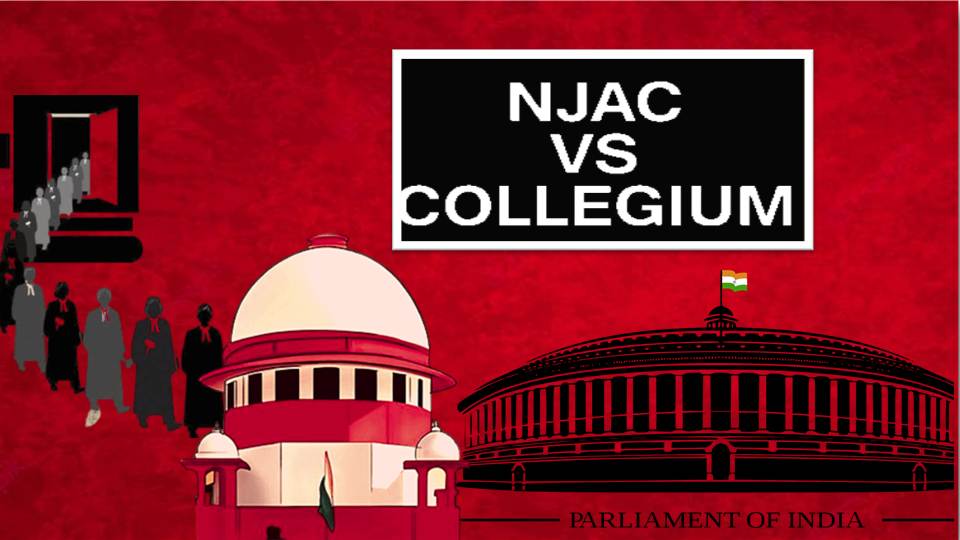NJAC: A participatory democratic system was envisioned in order to ensure that the will of the citizens is utmost importance. However, the will is subjected to the primacy of the constitution. The dispute at the foundation has always been the existing tussle for parliamentary supremacy over judicial supremacy and vice versa.
That is to say that the constitution has given superior review powers to the judiciary to decide the constitutionality of the laws passed by the legislature. On the contrary, there is no significant legislative check on the powers of the judiciary.
Moreover, the impartial tilt towards the judiciary is an interpretation of the constitutional provisions by the judiciary itself. Therefore, the legislature has often raised its voice against such overreach by one wing of the government. The recent debate has been rekindled by Vice President Jagdeep Dhankhar in his maiden speech as RS chairman.
Also read: As Justice Chandrachud becomes 50th CJI, Kiren Rijiju mounts fresh attack on collegium structure
Vice President’s bombastic speech on NJAC
On the first day of the winter session, the Chair admonished the two houses of parliament. The critique was directed towards the failure of the legislature in not taking cognizance over the judgement of the Supreme Court in setting aside the Constitution (99th Amendment) Act, 2014.
Catechizing the move of the Supreme Court to take down the constitution of the National Judicial Appointment Commission (NJAC), the Chairman of the Upper House said that there has been no parallel in democratic history where a legitimate constitutional prescription was judicially undone by the judiciary.
He highlighted that the stance of the Apex Court was a glaring instance of severe compromise of parliamentary sovereignty and disregard of the people’s mandate at the hands of judicial might. He emphasised that the authority of Parliament in making laws is an exclusive and ultimate determinant of the Constitution’s architecture. He suggested that in a democracy, parliamentary sovereignty is inviolable.
Also read: Kiren Rijiju talks about doing away with the collegium system in the Judiciary
Will of the citizen in supports NJAC
The NJAC was incorporated by the government by way of constitutional amendment in light of the long standing demand to bring about reform in the existing collegium system. The Vice President unequivocally brought about the act of quashing NJAC amounted to quashing the will of the citizen.
The NJAC bill had received unprecedented bipartisan support and was the “ordainment of the people”, therefore, the Parliament was duty bound to address the issue. VP Dhankar categorically pointed out the significance of adhering to the ‘Separation of Power Doctrine’ to ensure the democracy prospers in the right direction. “Any incursion by one institution in the domain of the other has the potential to upset the governance apple cart,” he said.
NJAC to be back soon!
The significance of the statement cannot be underestimated as it was made on the floor of the House. Such a strong reaction of the Vice President clearly suggests that the government machinery is soon looking to obliterate the previous overturning of the Collegium system of appointments in the higher judiciary.
The statement coming from the Chair, underlines the intent of the government on NJAC. There is a great possibility that the NJAC can be reintroduced in the times as it was “never too late to reflect”. His remarks come days after Union Law Minister Kiren Rijiju questioned the Collegium system of judicial appointments, calling it “opaque” and “alien”.
The critique of the Vice President on the floor of the House was not the first time; he openly catechized the NJAC verdict of the Supreme Court. Recently, at the 8th Dr L M Singhvi Memorial Lecture in New Delhi, speaking right after CJI Chandrachud, the Vice-President said, “The Indian Parliament, in 2015-2016, was dealing with a Constitutional amendment Act and, as a matter of record, the entire Lok Sabha voted unanimously. There was no abstention and no dissension. And the amendment was passed. In Rajya Sabha, it was unanimous, there was one abstention. We, the people – their ordainment was converted into a constitutional provision. The power of the people came to be reflected… on a legitimate platform through applicable mechanisms. That power was undone. The world does not know of any such instance.”
Also read: It is high time for NJAC 2.0
Time for Judiciary to reflect on NJAC
The continuous scrutiny of the NJAC verdict, points out that the opinion of the court in the said judgment is put to test by the legislature. The executive and the legislature seem to create an ecosystem for reintroduction of the NJAC.
The intent is, however, in sync with the dissenting opinion of Justice Chelameswar in the NJAC case of 2014. That is to say, the judiciary cannot evade the principle of transparency. The courts ought to balance between the right to know of the citizens’ and the right to privacy of the judicial candidates at the same time.
Support TFI:
Support us to strengthen the ‘Right’ ideology of cultural nationalism by purchasing the best quality garments from TFI-STORE.COM
